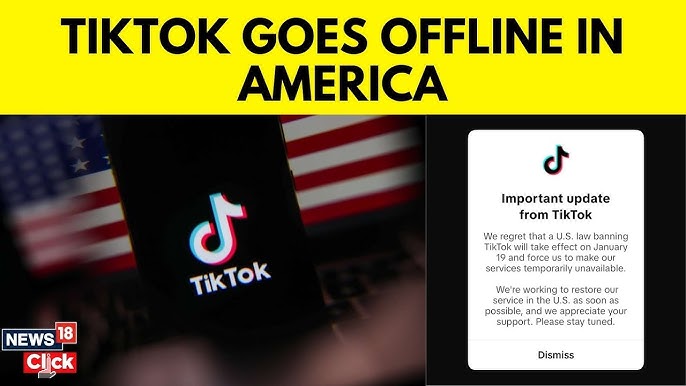TikTok’s Troubles Continue, Threat of State-wide Ban Looms
The clock is ticking away for the Chinese firm ByteDance, as it races against a rapidly approaching deadline to divest its U.S. operations of TikTok and put the company primarily under American ownership. Failing to fulfill this mandate could potentially lead to another state-wide TikTok ban that comes into effect the 5th of April.
The move to position TikTok into US hands was seeded in the halls of Congress last spring. Lawmakers assembled a legislation, forming a massive $95.3 billion foreign aid package, which ordered ByteDance to relinquish its TikTok goods, citing concerns related to national security. The worry was that TikTok could potentially be a conduit for the Chinese government to access American data or wield the platform to manipulate American perceptions.
ByteDance did not take kindly to these regulations, putting forth a substantial argument in the Supreme Court, claiming that such a move would violate First Amendment rights. Additionally, they insisted that the US government had not showcased any concrete evidence to back up their allegations. Despite these protestations, the court stood unanimous, and upheld the legislation.
With the law standing the test of court scrutiny, TikTok experienced significant local disruption. Its service went black on the 19th of January across America, and vanished from the app stores for a good 12 hours. The clause within the new law imposes hefty penalties on companies that facilitated user access to TikTok, financially punishing them with a $5,000 fine per user. Quite a staggering consideration, given more than 170 million Americans were tapping into the application on a monthly basis.
Apart from the economic complications, enforcement of the ban was momentarily halted for a span of 75 days due to an executive order. The intention was to buy some time to zero in on the most adequate strategy with regards to TikTok’s fate. Despite these temporary reprieves, the executive order was ineffective in overhauling the legislation, which remained very much intact.
February marked some respite for TikTok, with the app finding its way back on to the app stores. For those who already had it downloaded, the app will remain but with potentially limited functionality and no software updates to look forward to. Potential avenues for posting new content remain sketchy.
Some savvy users have begun exploring the reliability of VPNs to evade the regional ban. This method allows one’s device to mimic operation in a different location, though it remains to be seen how effective this measure will be. Moreover, New York has already taken a harsh stance against TikTok in the past, starting with a ban on state-issued mobile devices in 2020, followed by a prohibition on government-owned devices later in the year.
Several parties have expressed interest in snapping up the TikTok asset as it flutters on the selling block. Among the heavy hitters is the Project Liberty organization, guided by former Los Angeles Dodgers owner Frank McCourt. A formal bid was made to ByteDance at the start of the year.
In addition, a conglomerate of investors headed by Employer.com founder and CEO Jesse Tinsley has also submitted their own offer to ByteDance. An American-based search engine has also tossed its hat into the ring, proposing a merger plan to ByteDance back in January.
The first formal push to enact a TikTok ban materialized through an executive order back in 2020. This order not only sought to banish TikTok but also imposed a deadline on ByteDance to sell to an American company. Some users criticized this strategy as an attempt to quell dissent after campaign missteps were amplified through the platform, leading to empty rallies.
Ironically, even as ByteDance was going back and forth in negotiations with giants such as Microsoft and Oracle to finalize a sale, the company requested a preliminary injunction to prevent the ban. Astonishingly, they managed to secure such a halt, and the ban proved ineffective thereafter. What a twist of events!
Meanwhile, a whisper of a possible change began to circulate in January. There was a thought that Elon Musk, SpaceX and Tesla CEO, could step in to grab the TikTok reins. However, the billionaire dismissed such speculations outright. Musk’s public statement, during a German media summit, clarified that he had not made any plans to bid for TikTok, nor did he express immediate intentions to do so.
An interesting addition to Musk’s statement was his personal detachment from the platform. He revealed that he does not engage with the app and is largely unfamiliar with its mechanics. For a man known for his innovation and internet savvy, this disinterest indeed adds an extra layer of controversy to an already complicated situation.

